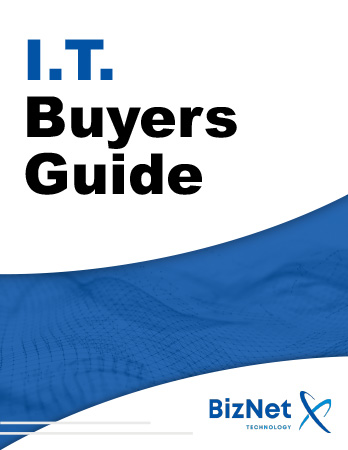Using phones, laptops, or tablets for online banking has become second nature for most of us. Yet this convenience also brings challenges, especially when it comes to keeping accounts safe while traveling or connecting from unfamiliar networks. One of the most common security tips is to use a VPN (Virtual Private Network). But does a VPN truly make online banking safer, or can it create new complications?
In this article, we’ll dig into the pros and cons, expert opinions, pitfalls to watch out for, and best practices for using a VPN when doing online banking.

What a VPN Can and Cannot Do
Benefits of Using a VPN
- Encrypted traffic: A VPN encrypts the data between your device and the VPN server, making it far harder for someone on the same network (for example, public Wi-Fi) to intercept your communications.
- IP masking: Instead of exposing your real IP address (and thus your location or network), you appear to come from the VPN server’s address.
- Privacy from your ISP or local network: Your Internet Service Provider or someone snooping on your local network sees only encrypted traffic to the VPN, not the details of which websites or services you’re visiting.
What a VPN Cannot Protect You From
- Malware already on your device
- Phishing attacks (fake banking websites)
- Keyloggers or screen capture malware
- Weak or reused passwords
- Vulnerabilities in the bank’s own systems
So even with a VPN, you must maintain good security hygiene.
Why a VPN Can Make Online Banking Safer
Protection on Public Networks
One of the biggest risks is when people access banking or sensitive services over public Wi-Fi. Attackers can perform “man-in-the-middle” attacks, intercept or redirect traffic, or set up fake hotspot networks. With a VPN, the data is encrypted, so even if someone intercepts it, they see gibberish.
Preventing Network-Level Eavesdropping
Even on home networks, routers or intermediate nodes (such as your ISP or compromised network devices) might monitor or log traffic. A VPN adds a layer so they cannot easily see exactly what’s being transmitted.
Avoiding Location Issues While Traveling
Banks sometimes flag or block access when they detect your login coming from a country you don’t normally use. Some users rely on VPNs to “appear” to be in their home country to prevent these flags.
Risks and Drawbacks of VPNs for Banking
VPNs May Trigger Fraud Alerts
Because a VPN masks your actual location, when you log in from a country or IP range your bank doesn’t expect, the bank might flag the login or block transactions as potential fraud. For example, if you're usually in Bolivia but your VPN server is in the U.S., that could raise red flags.
Free or Low-Quality VPNs Can Be Unsafe
Free VPNs or poorly managed ones sometimes:
- Don’t properly encrypt traffic
- Log or leak user data
- Include adware, trackers, or even malware
- Leak your real IP via DNS leaks, WebRTC leaks, or poor configuration
A recent warning also surfaced: a free VPN Chrome extension was found to secretly screenshot users’ browsing, including pages where users input banking info.
Leaks and Device Vulnerabilities
Even with a VPN running, vulnerabilities like WebRTC leaks in browsers can expose your real IP. Also, if your device is compromised by malware or keyloggers, the VPN won't protect you from what’s already happening on the device.
Can Banks Detect and Block VPNs?
Banks take online security seriously, and part of their fraud-prevention strategy can include detecting and even blocking VPN traffic. While a VPN generally makes online banking safer by encrypting your connection, it can also raise red flags if the bank’s system thinks something looks unusual.
How Banks Recognize VPN Usage
Banks track login patterns to protect against unauthorized access. If your account shows frequent logins from different regions, or if your IP address matches one known to belong to a VPN with many users, the system may flag it as suspicious. Some institutions also use VPN detection tools to block access from shared or blacklisted VPN servers. That’s why logging in from a widely used VPN IP can sometimes cause errors or require extra verification.
What Happens if Your Bank Blocks Your VPN
If your bank rejects your VPN connection, you might see an error message or have your account access temporarily limited. In some cases, you’ll need to verify your identity before being allowed back in. For anyone who relies on a VPN to stay safe online, this can be inconvenient, especially if you’re traveling or need to complete an urgent transfer.
Workarounds to Keep Access Secure
If you regularly use a VPN for banking, there are ways to reduce the chance of being blocked:
- Use a dedicated IP address – Instead of sharing an IP with thousands of other VPN users, a dedicated IP makes you look like a consistent, trusted login source.
- Enable split tunneling – This lets you route your banking traffic directly through your internet connection while keeping all your other online activity encrypted behind the VPN.
- Stick to servers in your home country – Using a familiar location makes it less likely your bank will trigger a fraud alert.
By combining these tactics, you can enjoy the extra privacy and protection of a VPN without running into unnecessary roadblocks.
Final Verdict: Is a VPN Safe for Online Banking?
Yes, using a trustworthy VPN can be safer for online banking than not using one, particularly when you’re on untrusted or public networks. But the safety depends heavily on which VPN you choose, how you configure it, and how you behave as a user.
Best Practices for Using a VPN With Online Banking
- Choose a reputable, audited VPN provider
Look for ones that have undergone independent security audits and that maintain a no-logs policy. - Use VPN servers in your home country (or a location your bank expects)
That reduces the chance your bank will flag a login as suspicious. - Enable a kill switch or auto-disconnect
This ensures that if the VPN drops, your real IP doesn’t leak to the network. - Check for DNS or WebRTC leaks
Use browser settings or extensions to block WebRTC leaks, and test for DNS leaks with online tools. - Keep your device clean and updated
Even with a VPN, security fails if your machine is compromised. - Use strong, unique passwords with two-factor authentication (2FA)
The VPN is one layer; your account security needs others. - Avoid VPN while doing highly location-sensitive transactions
If the bank flags your account, temporarily disabling VPN may help, provided you’re on a secure network. - Do not trust free VPNs without scrutiny
Many free services monetize through weak security, ads, or data collection.
Conclusion
A VPN can be a powerful tool to make online banking safer, especially when you're using public or potentially insecure networks. But it’s not foolproof, and the security it provides depends on using a trustworthy service and following best practices.
For the best experience, choose a reputable VPN, stick to servers in your home country, and always combine it with strong passwords and multi-factor authentication. That way, you can keep your banking sessions private, secure, and free from unnecessary headaches.




